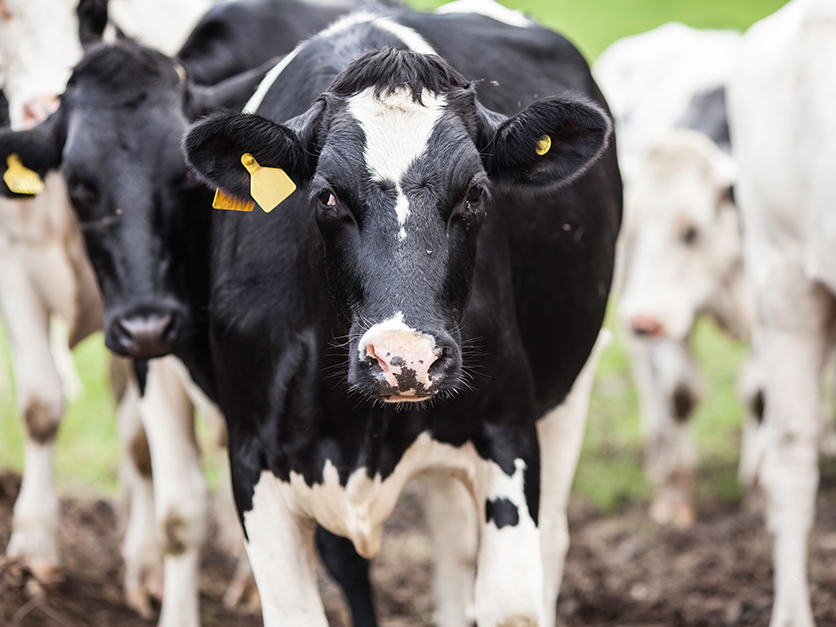
Farm groups are lobbying Congress and the Trump administration for a number of relief measures to help producers cope with the slide in many commodity markets that has deepened as the COVID-19 pandemic worsens.
Congress is being asked to increase USDA’s Commodity Credit Corp. spending limit to $50 billion, up from $30 billion, to enable more direct payments to growers, including a another round of Market Facilitation Program payments.
Two cattle producer groups that are often divided on issues are both pushing for direct aid.
The Agriculture Department is being asked to consider reopening enrollment for the Dairy Margin Coverage program, to help milk producers whose markets have tanked in some areas, as well as the Agricultrure Risk Coverage and Price Loss Coverage programs.
Sources familiar with the issue say that USDA is supporting the increase in the CCC limit. Authorization for the increase would likely be temporary and included in a supplemental appropriations bill, separate from the $1 trillion economic stimulus package that lawmakers are now negotiating, according to the sources. USDA didn't respond to a request for comment on the issue.
“If you look at what’s going on with the trade treaties, it has not picked up as fast as we all expected it to. We expected it to be a little slow, but not this slow. … We’re getting real close to needing” more MFP payments, said Zippy Duvall, president of the American Farm Bureau Federation. "We're glad they're
Beef was left out of the 2018 and 2019 versions of MFP, but live cattle prices have dropped about 30% since January, both the National Cattlemen’s Beef Association and the United States Cattlemen’s Association are appealing for some form of direct aid.
"The market disruptions caused by COVID-19 have not been limited to the financial markets. Commodities, in both the futures and spot markets, have also experienced significant shocks, which have led to depressed prices for both live and feeder cattle across the country,” NCBA said in a letter to lawmakers in support of the increase in USDA’s CCC authority.
“This price disturbance has created tremendous uncertainty in the cattle industry, and has come at a time when cattle producers are singularly focused on maintaining adequate supply to meat and food processors.”
Interested in more coverage and insights? Receive a free month of Agri-Pulse or Agri-Pulse West by clicking here.
Eight senators have signed onto a letter supporting some form of payments to cattle producers. The senators include several senior Republicans on the Appropriations Committee, Democrat Kyrsten Sinema of Arizona, and Arkansas Sen. John Boozman, who will become the top Republican on the Agriculture Committee next year.
Senate GOP Whip John Thune, a South Dakota Republican who also supports providing aid to cattle producers, say that a new round of MFP payments would be the easiest way to provide it.
Dairy producers, meanwhile, are struggling with an oversupply of milk that sharply depressed prices in some areas. Enrollment in the DMC fell sharply this year following projections that margins (the difference between milk and feed prices) was expected to stay well above the levels that trigger payments.
About 13,074 farmers are enrolled this year in DMC, compared to more than 23,395 in 2019, out of more than 37,000 licensed operations nationwide.
“We have been in discussions with the White House, USDA and Congress on a range of policy options needed to address the impact of the Covid-19 pandemic on U.S. dairy industry," Jim Mulhern, president and CEO of the National Milk Producers Federation, said in a statement to Agri-Pulse. "Based on input we received from the NMPF Executive Committee at the beginning of this week, we have communicated the importance of re-opening the 2020 DMC sign-up to USDA and members of Congress."
Mulhern said that "many producers didn’t sign up for the DMC program this year because at sign-up time milk prices and margins for 2020 were looking much better than they had been in recent years and it appeared the program might not be helpful. That’s been erased by a steep decline in the dairy outlook. We support re-opening DMC signup so producers can receive the support this program could provide. But we are also looking at other policy needs, because DMC alone will not provide sufficient protection from the potentially catastrophic economic situation the nation’s milk producers may face.”
The downturn in dairy markets “is going to be devastating to already financially stressed farms,” said Mark Stephenson, a dairy economist at the University of Wisconsin.
Reopening enrollment for DMC, ARC and PLC is "just a conversation at this point. (We have) no USDA confirmation that that would be on the table," said John Newton, AFBF's chief economist.
For more news, go to: www.Agri-Pulse.com